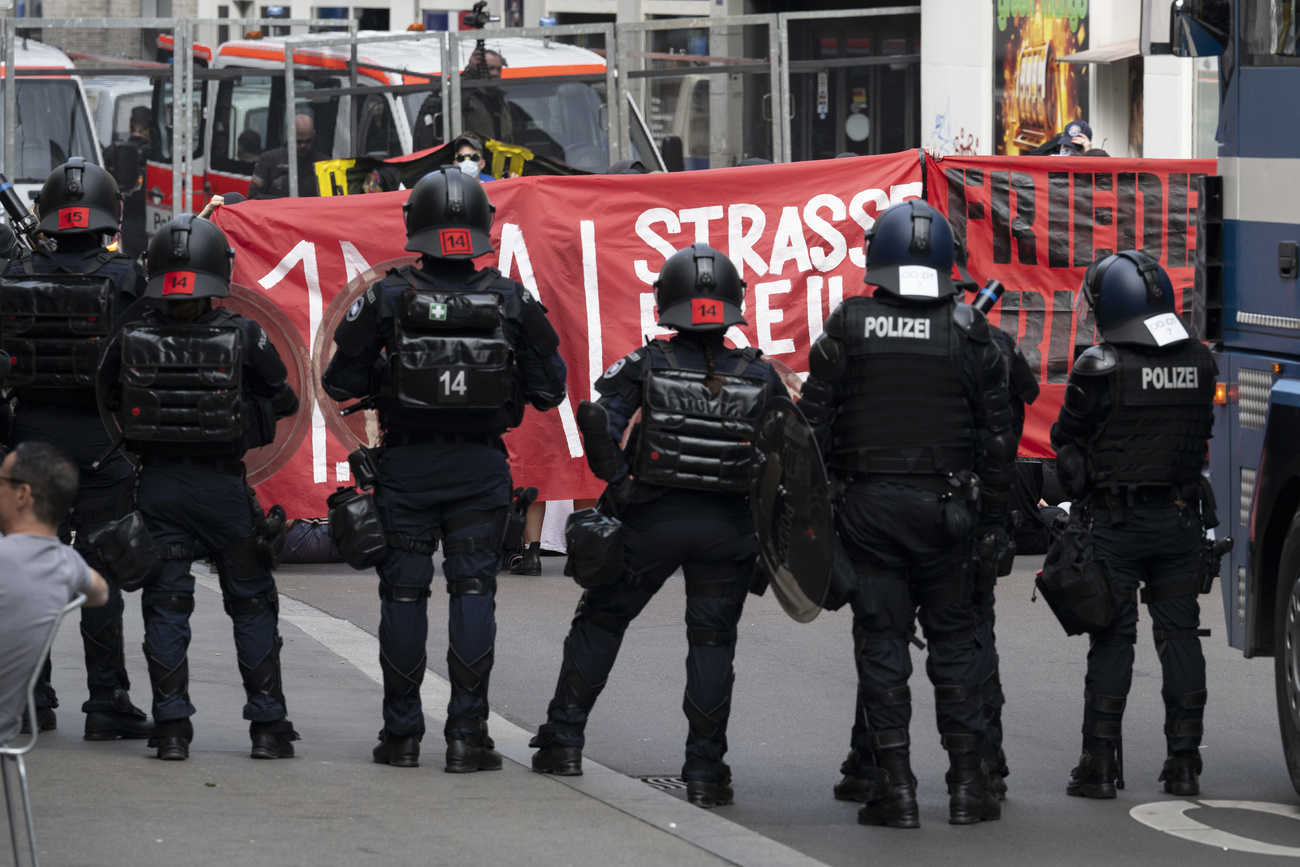Swiss happy to see end of EU annus horribilis

Swiss diplomats would describe 2009 as “eventful”. Rarely has Switzerland come in for so much criticism and pressure from the European Union (EU).
Workers in Brussels and the media – not to mention satirists – were all grateful to the Swiss government, UBS, banking secrecy, Roman Polanski and November’s referendum on minarets for giving them such juicy material to work with throughout the year.
“No one in Brussels has ever talked about Switzerland so much!” said one European diplomat.
For their part, Swiss diplomats can finally catch their breath and hope that 2010 will be less turbulent.
Certain developments give them reason to be optimistic. The divisive issue of cantonal taxes will witness a “temporary lull” as a result of a series of happy events, according to one person involved in the dossier.
Bern has proposed to reform a system that offers low corporate tax rates in a way that will be welcomed by the EU, although no details have been made public. At the same time, the European Commission group responsible for the Swiss dossier is undergoing a shakeup.
The lull will last at least until the new European Commissioners enter office. Commission President José Manuel Barroso announced his preferred list on November 27 but the executives still need approval from the European Parliament.
Some people even think a solution to the tax dispute is within reach, a long-term truce during which one could see whether the reforms put an end to what Brussels denounces as an “unfair competition”.
“But it’s tricky,” points out a Brussels insider. “How do you obtain legal security without a legal accord?”
Schengen
The Swiss are also happy with progress made negotiating electricity distribution, research, education and their participation in the Galileo navigation system, the “European GPS”.
What’s more, they saw that EU threats to block these negotiations if the cantonal tax differences were not resolved were nothing but hot air.
Finally, Switzerland’s entry into the Schengen Area, a group of 25 European countries which have abolished all border controls between each other, has opened the way to participation in Frontex, the EU agency for external border security.
The Swiss recently asked members of the Schengen zone to implement a restricted visa policy for applications from Libya. This was in return for Tripoli’s refusal to release two Swiss businessmen who Switzerland says are being held illegally in Libya in connection with the arrest in Geneva in 2008 of a son of Libyan leader Moammar Gaddafi.
In November Schengen visas were refused to the Libyan prime minister and other top officials. Deputy Foreign Minister Khaled Kaïm denounced a “systematic and programmed solidarity with Switzerland”.
This enabled Bern to feel – for a fleeting moment – less isolated during an “annus horribilis” which has left Switzerland battered and bruised.
REACH for it
Having said that, 2010 isn’t set to be plain bilateral sailing, according to diplomats in Brussels.
The Commission wants to revise the savings tax accord, which should be extended beyond physical individuals. And pressure is also growing in Europe for the automatic exchange of information.
“This is a ‘no go zone’ for Bern and it isn’t an international standard returned by the OECD [Organisation for Economic Co-operation and Development] or the United States,” said one expert.
2010 will also be a big year for negotiations involving REACH (the Registration, Evaluation, Authorisation and restriction of Chemicals), an acronym that is well known in the corridors of Basel’s pharmaceutical giants.
Switzerland, a market leader whose companies include Roche and Novartis, would like to integrate the system, which aims to better understand – and ultimately reduce – the impact of chemicals on humans and the environment. Bern argues that not joining REACH would expose these companies to significant additional costs.
But Switzerland’s boarding the REACH train poses several problems: the automatic adoption of future developments, in addition to the designation of a competent jurisdiction in cases of appeal.
The EU would like ideally to appoint the European Court of Justice in Luxembourg, but this would be unacceptable for Switzerland, which would see it as an attack on its sovereignty.
Alain Franco in Brussels, swissinfo.ch (translated from French by Thomas Stephens)
The government has ruled out an automatic acceptance of EU laws.
Foreign Minister Micheline Calmy-Rey has said the flexibility offered in bilateral treaties would be at risk if Switzerland agreed to any form of automatism.
In a foreign policy report published in September the ministry warned that Switzerland must be ready to adapt its approach to European policy if interests so require.
In an interview with a German newspaper Calmy-Rey said economic interests and issues of direct democracy were key for Switzerland’s stance on membership in the EU.
Switzerland is not an EU member, but has concluded more than 20 major bilateral accords with Brussels since 1972.
Voters in 1992 rejected the European Economic Area treaty; an application for EU membership has been lodged but remains dormant.

In compliance with the JTI standards
More: SWI swissinfo.ch certified by the Journalism Trust Initiative













You can find an overview of ongoing debates with our journalists here . Please join us!
If you want to start a conversation about a topic raised in this article or want to report factual errors, email us at english@swissinfo.ch.